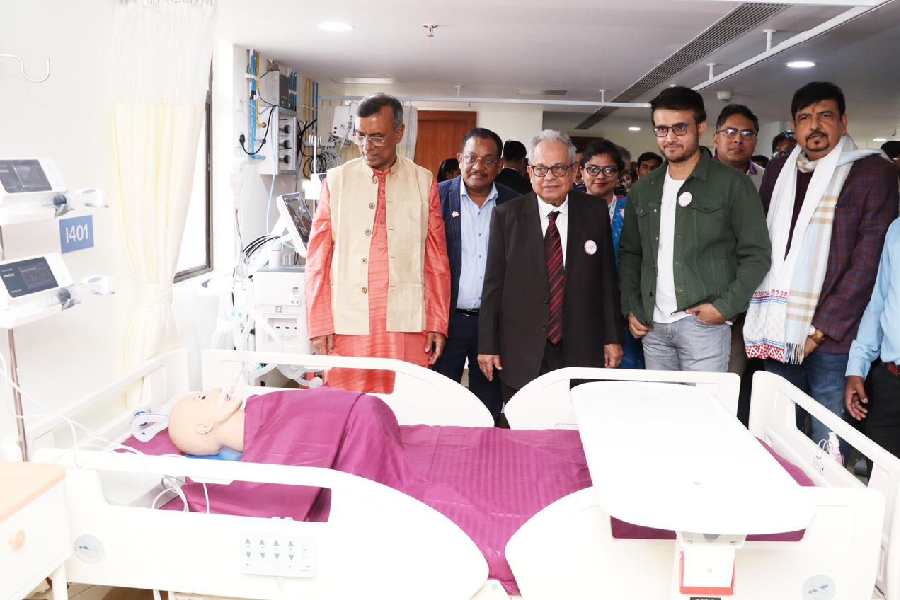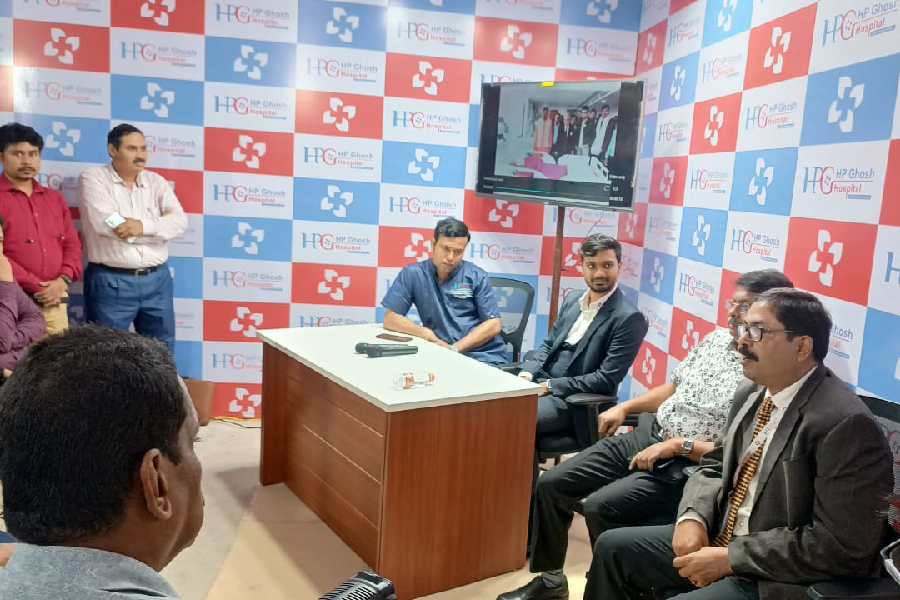In a significant advancement in healthcare technology, Calcutta Salt Lake's HP Ghosh Hospital has taken a groundbreaking step by integrating smart technology into its Intensive Care Units (ICU). This innovative move makes it the first facility in Calcutta and Eastern India to adopt such a system, aiming to enhance patient care and reduce mortality rates.
The newly launched Smart ICU allows doctors to remotely monitor the condition of critically ill patients through smartphones. This system is designed to facilitate instant access to patient data, enabling healthcare professionals to make timely decisions and intervene promptly when necessary. The initiative is expected to streamline patient management and significantly improve the chances of recovery for those in critical condition.

Demonstration of Smart ICU Sourced by TT Online
Mr. Somnath Bhattacharya, the Chief Executive Officer of HP Ghosh Hospital, highlighted the potential impact of this technology. According to him, the constant monitoring and care provided by specialists through the Smart ICU could reduce the risk of death among severely ill patients by nearly 40%. The hospital, renowned for its commitment to leveraging cutting-edge technology for patient care, is part of the Eastern India Heart Care and Research Foundation.
Dr. Hirak Bhattacharya and Dr. Trinanjana Sarengi, leading critical care specialists, will oversee the operations of the Smart ICU. They emphasised the importance of timely critical care in saving lives, noting that the Smart ICU's technology would be crucial for managing emergencies and monitoring patients after major surgeries, such as bypass operations and organ transplants.

Press meet for the Launch of Smart ICU Sourced by TT Online
The Smart ICU is equipped with advanced technology that allows for the remote observation of patients' conditions. Special alarms will notify both the ICU staff and senior consultants of any sudden deterioration in a patient's health, enabling immediate intervention. Doctors can review real-time patient data and test results on their mobile devices and provide instructions to on-site medical staff, ensuring prompt and effective treatment.
Initially, the Smart ICU will operate with 43 beds, with plans to expand its capacity in the future. This innovative approach to critical care represents a major step forward in improving healthcare outcomes and offers a glimpse into the future of medical treatment.










